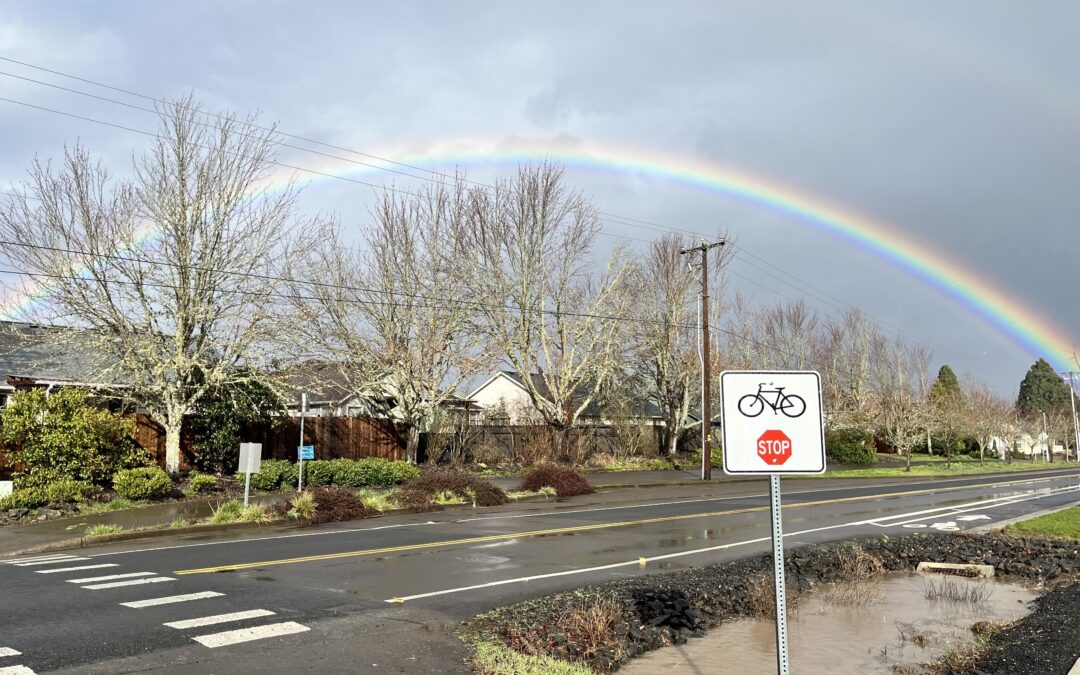Ward 6 Councilor Laurie Chaplen is running unopposed for reelection to the Corvallis City Council. Here are her answers to five questions regarding houselessness in Corvallis and how the council can best handle the issue. Her answers have not been edited, except when necessary for clarity.
1. What is the proper role of the city of Corvallis in providing services to people who are unsheltered? To list a few examples: Should the city be working to provide shelter? Permanent supported housing? Affordable housing? Case management and medical services for houseless people? What has the city gotten right in its approach to houselessness? What could the city do better?
The city should be focusing as it is currently on fostering all types of housing including affordable housing and fostering social service providers in providing shelter and PSH (permanent supported housing). This is what the city is doing right but could do better. The case management and medical services are the role of the service providers, Samaritan and its CCO (coordinated care organization), the county, COG (the Council of Governments), CSC (Community Services Consortium) and the medical/social service community and they are doing good service but the needs are overwhelming. Note: I have seen good work by city staff trying to help unhoused in many ways – working with community providers to help a person get started into housing for example.
2. Considering the recommendations from the city-county HOPE (Home, Opportunity, Planning and Equity) advisory board: Which ones would you place the highest priority on and why? What items would you add to the list of recommendations and why? What role should the city and the City Council take in implementing and funding those priorities?
All the priorities are interrelated and needed for in some cases for unhoused to be successful. We all want the unhoused housed, but the other items like the behavioral care, more shelter space and continuum of care and the data tracking is needed. One thing to add is to dramatically increase mental health and addiction services (inpatient and outpatient) in Corvallis and Albany – this in my eyes would be done by Samaritan hospitals and the Coordinated Care Organizations. The city is one of the few in the state that have a social service levy and currently the council is reviewing the social service funds and if any changes should be allocated.
3. The Corvallis Police Department has launched a trial program with the Benton County Health Department to respond to people experiencing mental health crises; many of those people are unsheltered. The program is reminiscent of the CAHOOTS program in Eugene, but with at least one key difference: CAHOOTS calls are responded to by a medic and an experienced crisis worker. In Corvallis, a uniformed officer and a mental health professional respond to calls. Is this the correct approach? Why or why not?
It think either is good, CAHOOTS is run by a private provider who obtains reimbursement by various state and other sources. If the county/city could work to get CAHOOTs in Corvallis I would be very open to it however in Eugene the police are still needed. The Corvallis solution is good; however, it needs to be 24×7 and have more mental heath providers on staff by the county.
4. Estimates are that the city spends tens of thousands of dollars each year posting and clearing camps where unsheltered people have been living. Do you think this is the best approach, or are there other strategies the city could consider – for example, should the city work with providers to create a managed camp or a sanctioned site where people who are unsheltered could settle?
Sweeps is the approach by all regional cities and not the best use of funds; however people need to be out of riparian and other sensitive areas as well as out of areas that flood. A regional approach with all cities having the same process/policy would help and any camping should be managed by providers and supported by the counties and cities.
5. A proposal is in the works to establish a “rolling moratorium” on posting and clearing camps in city parks for a certain length of time; for example, specific parks would be identified as not to be posted or cleared for specific time periods. At the end of the period, it would be clear which park would be next on the rolling moratorium, and support from nonprofit providers and volunteers would assist in movement from one site to the next. Do you think this proposal is worth exploring? What do you see as its benefits and drawbacks?
It is definitely worth exploring and I would be interested. One drawback is litigation as the city parks are not to have camping in them. I would like to see someplace where there are managed camps where the unhoused can get stabilized and get the behavioral and health care they need to be able to contribute to society however they can.




0 Comments